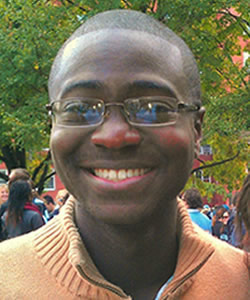In another place, in another time, under different circumstances, Mahatma Gandhi once said “You must be the change you want to see in the world.” Whenever I think of this quote, I envision an egalitarian society in which everyone is encouraged to bring their voices to the public forum. A few weeks ago, I thought of Gandhi when President Obama came out in support of gay marriage. I thought, like so many Millennials, of how I could possibly change the world when dubious exclusionary practices halt who can, and cannot, get married.
Reflecting on gay marriage, I was reminded of the Millennial Values Survey, released last month, in which, religiously unaffiliated Millennials described Christians as “judgmental” and “anti-gay.” I was deeply troubled by these perceptions, because, as a follower of the Christian faith, I take great care to treat everyone I encounter with utmost civility. In my quest to use my new sense of optimism about public discourse, I asked my parents for their thoughts on gay marriage. Not surprisingly, my mother told me she was becoming more tolerant to the idea, while my father expressed that homosexuality was “unnatural.” My father’s opposition reinforced my feelings of paralysis and apathy shared by many people in my age group. Again, how could I be the change I wanted to see in the world, when so many people believed in restricting civil rights to homosexual people?
My frustrations made me remember the challenge posed by Dr. Banchoff at the culmination of the Millennial Values Symposium. Dr. Banchoff challenged us all to focus on how best we could save our democracy and I sincerely believe President Obama’s support of gay marriage has taken us one step closer to reaching that goal. The president’s comments encouraged all Americans to see the struggles of others, which many simply do not take time to do. The religious do not converse honestly with the secular. The rich do not speak genuinely about the plight of the poor. Heterosexuals do not empathize wholeheartedly with homosexuals. To conceptualize fixing our democracy we must clearly speak to each other-no?
If we can break free from the bondage of our distinct social enclaves, we create safe spaces that not only foster ideas of how to save our democracy, but, we also give all citizens the opportunity to follow Gandhi’s advice and to make their own difference in our world.

